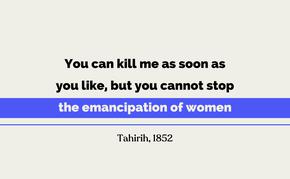The views expressed in our content reflect individual perspectives and do not represent the authoritative views of the Baha'i Faith.
In 2016, the commanding officers of the United States Army and the Marine Corps testified before Congress, saying that the time has come for young women to register for future military drafts.
That testimony followed the Pentagon’s 2013 decision to open all military jobs, including those in combat units, to women. Since then, a number of women have become combat soldiers in the U.S. military.
Is this a good idea? Should women become combat soldiers — involuntarily? If you have daughters, or if you are a daughter, where do you stand on the issue?
RELATED: Should Women Be Drafted? The U.S. Will Soon Decide
These moves on the part of the United States military have generated tremendous controversy and ignited an ongoing debate in American society. So far, Congress has not acted on the military’s recommendation to register women for the draft, but currently, the U.S. Supreme Court now must make the final decision on a lower court case that declared the male-only draft unconstitutional — because it excludes women.
That pending Supreme Court decision pits the strong legal principle of equal gender rights against the longstanding tradition of men and only men becoming combat soldiers.
Of course, women have long entered military service — but their roles have usually been limited to non-combat occupations. As a result, many people believe that women should not be subject to a military draft if it requires them to engage in combat. In fact, Abdu’l-Baha, who led the world’s Baha’is, gave a talk in Paris about this very issue during the immediate period before the outbreak of World War I in Europe. He said:
In this Revelation of Baha’u’llah, the women go neck and neck with the men. In no movement will they be left behind. Their rights with men are equal in degree. They will enter all the administrative branches of politics. They will attain in all such a degree as will be considered the very highest station of the world of humanity and will take part in all affairs. Rest ye assured. Do ye not look upon the present conditions; in the not far distant future the world of women will become all-refulgent and all-glorious, For His Holiness Baha’u’llah Hath Willed It so! At the time of elections the right to vote is the inalienable right of women, and the entrance of women into all human departments is an irrefutable and incontrovertible question. No soul can retard or prevent it.
But there are certain matters, the participation in which is not worthy of women. For example, at the time when the community is taking up vigorous defensive measures against the attack of foes, the women are exempt from military engagements. It may so happen that at a given time warlike and savage tribes may furiously attack the body politic with the intention of carrying on a wholesale slaughter of its members; under such a circumstance defence is necessary, but it is the duty of men to organize and execute such defensive measures and not the women – because their hearts are tender and they cannot endure the sight of the horror of carnage, even if it is for the sake of defence. From such and similar undertakings the women are exempt.
RELATED: What War Did to Me – and to Us
This fascinating principle from Abdu’l-Baha preceded the contemporary scientific understanding of the effects of wartime trauma and PTSD by more than a century. We now know that such trauma can be transmitted to future generations of children epigenetically, and research is ongoing to try and determine how, and how much, wartime psychological and moral injury passes from the mother’s trauma-altered genome to babies in the womb.
We know, too, that involvement in active combat situations can have significantly more long-term mental health consequences for women than for men. As just one example, women veterans are 2.2 times more likely to commit suicide than civilian women, according to an extensive Veterans Affairs Department study, while the rate of suicide among male veterans was just 1.3 times higher than the rate among non-veteran males.
Clearly, our societies have an important decision to make: Will we require women to fight our wars? In the next installment in this series, we’ll look at whether men want war more than women, and see what the Baha’i teachings have to say about that fascinating subject.

















Comments
Sign in or create an account
Continue with Facebookor